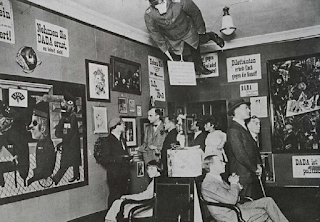Art and Anarchism 2: Proudhon and Emile Zola
Proudhon thought that a moral and anti-metaphysical critique through art was crucial for the advancement of society. He argued art to be deeply rooted in ideology since the creative vision of the artist couldn’t be separated from the real world. Proudhon wrote a great deal on Courbet since as an artist, he not only recognized this fact but also utilized his art accordingly through rejecting metaphysical art and photorealistic depictions. Proudhon considered “aiming beauty for the sake of beauty” a self-indulgent act since the power of artistic abstraction could be a vehicle for improving humanity.
Following Proudhon’s defense for Courbet’s work after his rejection from state’s annual art exhibition, Emile Zola (a Parisian journalist) criticized Proudhon’s standpoint on the duty of the art and the artist after declaring himself an anarchist in Proudhon’s sense. Zola argued Proudhon’s approach to be deducing the artist into a certain type that pursues a certain goal and to be impoverishing the definition and scope of art. He argued Proudhon’s artist to be oppressed and forced to give up on his/her own artistic freedom for the sake of the society. Zola argued the work of art to exist only through its originality and this originality to be sourced from formal elements such as color, texture, light etc. He considered content to be of secondary importance since it was always derived from the external world or the tradition.
To Zola, artistic individualism and originality were the true anarchist act. He also appreciated Courbet but as an individual who refused to imitate the reality and to follow the aesthetic tradition. He criticized Proudhon for reducing Courbet to his chosen subjects rather than celebrating his artistic qualities, failing to understand that Courbet’s art existed through himself and not through his subject matter.
Next week I will be talking about anarchist Neo-Impressionists and their depictions of the dispossessed.


Comments
Post a Comment